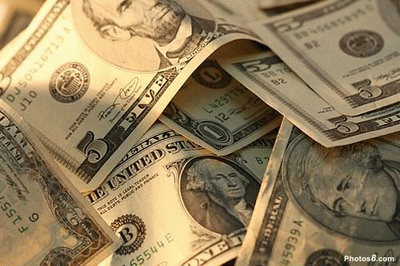The federal
government has been paying ever more interest on its ever growing indebtedness
for more than 200 years. James Jackson,
Congressman from Georgia, predicted in 1790 that this would happen in a speech
he made to the First Congress. Jackson
warned that passing Alexander Hamilton's plan to base the country's money
supply on the existing federal debt of $75 million would "settle upon our
posterity a burden which they can neither bear nor relieve themselves
from." He further predicted that "in the
course of a single century it would be multiplied to an extent we dare not
think of." More specifically he clearly saw that Hamilton's plan would put in
place an exponential process of debt growth. To support his warning he cited the
experience of Florence, Genoa, Venice, Spain, France, and England.
Hamilton's clever
(but unrealistic) plan was for Congress to commit the country to pay interest
on the debt until the debt was paid off.
In the meantime the debt certificates would circulate as money. He argued that this would turn the $75
million debt into a $75 million money supply.
The problem was that interest
payments on this indebtedness would have to come out of the money supply. And this would steadily reduce the quantity of
money that remained in circulation -- and thereby cause recession -- unless ever
more new borrowing forever returned
the paid-out interest money back into circulation. Thus the history of federal government
finance revealed early-on the periodic swings that were in store for us --
swings between debt reduction-and-recession,
. . and debt increase (further
indebtedness) and temporary recovery, which have plagued us ever since.
The power to deal with this problem, which
Congress has neglected all these years, is the power "to "coin' (create) money
and regulate the value thereof," as stipulated in the U.S. Constitution
Congress has
overused its power to borrow money on the credit of the United States. According to the Federal Reserve, 98% of the
U.S. money supply is borrowed, and only 2% is "coined,' i.e. created by the
government.
Conclusion: The First Congress got us off on the wrong
track. It should have simply created (coined)
$75 million in currency and paid off the debt!
So why did the First Congress borrow instead of "coin' (i.e. create) the money the country needed?
Newspapers
at the time accused members of Congress of acting to serve their own
interests. And in retrospect, this does
appear to be the case: Congress sent agents into the countryside to
buy up debt certificates that the general public thought were worthless or
nearly so. Once this was done, Congress cleverly
passed the Funding Act, knowing that it
would give themselves and their heirs a source of income that would grow
exponentially with the debt.
(Note: You can view every article as one long page if you sign up as an Advocate Member, or higher).





